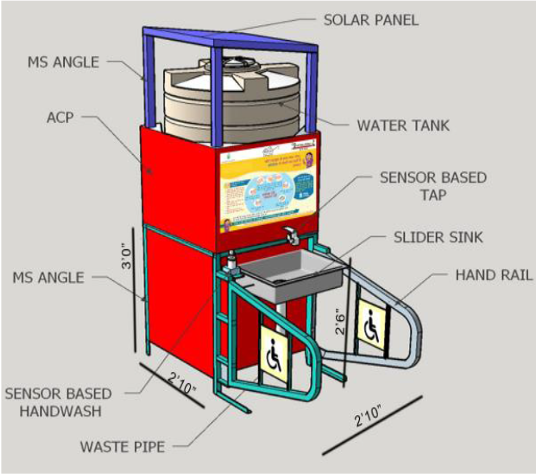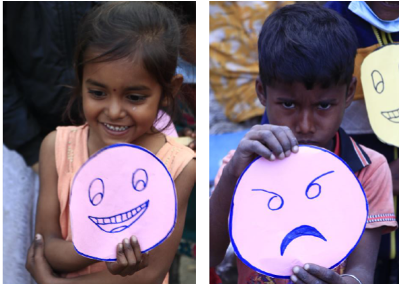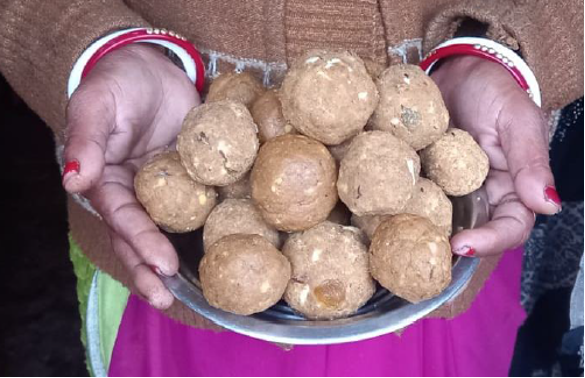Finding innovative solutions to the complex problem of poverty is at the heart of what we do at AKF. As an organisation guided by the communities we serve, creating solutions that are adaptable, contextually relevant and sustainable is central to how we design our development programmes. With so many of our team born and raised in the places where we work, AKF has a deep well of local knowledge and expertise to help generate innovative solutions to complex challenges around health and nutrition, food security, equal participation and more.
In India, the AKF team has formalised this process by launching the Innovation Challenge – an internal initiative designed to inspire team members to share innovative solutions to the challenges they encounter in their day-to-day work to improve the quality of life. Crucially, the challenge is open to all staff – regardless of their seniority, technical area of expertise or base geography – in order to nurture a culture of innovation and harvest ideas which otherwise may not have had a platform.
“Innovation has always been part of the spirit of AKF, but in order to achieve the next generation of solutions, we need to empower everyone to become an innovator. We believe that the next big idea could come from anyone, anywhere.”
Munir Ahmad – AKF Global Lead for Innovation
Three winning innovations were selected from a total of 19 submissions from a review process which included presentations to senior management. The three winning teams are currently receiving mentoring from Munir Ahmad (AKF’s Global Lead for Innovation) and Katie Krummeck (Global Innovation and Design Advisor) and will begin to pilot their ideas with the communities they support by early May.
Read on to find out more about the winners and their creative innovations…
Handwashing unit for differently abled citizens
Sharjeel, Shivon and Vivek
During COVID-19, AKF’s teams all over the world redoubled their efforts to ensure accessibility to clean water and handwashing for remote and marginalised communities. Sharjeel, Shivon and Vivek – all of whom were key members driving these efforts in India – recognised that accessibility to handwashing for differently abled people was limited, and so designed a handwashing unit to serve their needs as part of the Innovation Challenge. Their handwashing unit is sensor-based, solar-powered, and includes an adjustable sink and handrails.
“I would like to see the idea of the handwashing station for differently abled people replicated at a large scale, benefiting more people who have been left out.”
Sharjeel – Handwashing station for the differently abled

Emo-diary
Arun, Jitendra, Karar, Manoj and Nibedita
‘Emo-diary’ is a tool for understanding the socio-emotional development of children attending early childhood development (ECD) centres. ECD staff often noticed that children felt sad when arriving at the centres and it was difficult to understand what they were going through. Using an ‘Emo-diary’, children choose an emoji to express how they’re feeling and ECD staff can keep a diary of the children’s’ emotions each day. This way, the ECD staff can work together with parents and caregivers to find out what might be causing negative emotions and find solutions to improve the children’s wellbeing.
“To create something new for people that makes their life easy…I feel very happy that I am able to work on this with children through our idea.”
Nibedita – Emo-diary

Poshan Laddoo
Rinki
Rinki has witnessed the devastating impact Acute Encephalitis Syndrome (AES) can have on children in the areas she works and so she wanted to create something using her nutrition expertise which could help to reduce the prevalence of this disease as well as malnutrition generally. So she developed ‘Poshan Laddoo’ – a highly nutritious snack which can be given to children to help them overcome malnutrition and be better able to withstand disease and infection. The sweet snack has many nutritional elements and can be mixed with water to be given to very young children and babies.
“I would like to see the current levels of malnutrition decline, leading to healthier communities and a more productive and economically strong country.”
Rinki – Poshan Laddoo

Working with AKF’s Innovation Team, the finalists will now develop their ideas further, begin testing them and ultimately see if these grass-roots solutions will improve the quality of life for the communities that AKF serves. Watch this space!




